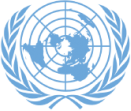Statement by Foreign Secretary Mr. Bharat Raj Paudyal
at the 21st Annual Ministerial Meeting of LLDCs Held on the Margins of the
77th session of the UN General Assembly
New York, 22 September 2022
Mr. Chairman,
Honorable Ministers,
Madam USG and High Representative, and
Distinguished Delegates:
I would like to begin by thanking you, Mr. Chairman, for convening us today. I would also like to commend your stewardship of our Group in these tough times.
Please allow me to congratulate Madam Rabab Fatima on the assumption of her responsibilities as Under-Secretary-General and High Representative for LDCs, LLDCs and SIDS.
I thank Madam USG and her able team at OHRLLS for their continued efforts in promoting the cause of LLDCs.
Mr. Chairman,
We are living in the third year of the pandemic. It still stands as one of the major challenges of our time.
The geopolitical tensions are on the rise, and some have unfortunately morphed into a major confrontation.
Together, they have rendered deepening disruptions to global supply chains and bleak prospects of social and economic recovery.
The LLDCs, which are faced with pre-existing development challenges in trade, transport, and connectivity, are the hardest hit by these crises. The COVID-19-related restrictive measures have negatively affected their trade and increased the already high trade and transportation costs.
Climate change, biodiversity loss, and natural disasters continue to add woes to the peoples and economies of our countries.
Against this backdrop, I would like to highlight the following points:
First, green and resilient recovery from the pandemic must be our top priority. It is time to expedite action on vaccines, to prioritize investment in people; and to overhaul social support systems.
We must chart out sustainable pathways to deal with the long term economic, social, and developmental consequences of the pandemic.
Second, we are nearing the end of the Vienna Program of Action. As we gear up for the next Conference on LLDCs, the implementation of the VPoA must be ramped up. We must focus on its unfinished business, with more resolve and solidarity.
We must do so in tandem with the 2030 Agenda for Sustainable Development.
Third, Connectivity – both in physical and digital spheres – is critical to link up our countries with global markets and value chains.
In this connection, we see the Ashgabat Process as an important drive for ensuring sustainable transport solutions for LLDCs. We must now chart out concerted actions for building resilient infrastructure, building productive capacities, diversifying trade, and transforming economies of our countries.
Fourth, it is time to recalibrate and strengthen the foundation of global cooperation for LLDCs. They must receive an enhanced level of support from transit countries and development partners.
Developed countries must fulfil their ODA commitments in support of the development efforts of LLDCs. Measures must be taken to ensure that LLDCs get a fair share of FDI, aid for trade, and technology to complement their national development efforts.
Finally, our countries are at the sharp end of climate change.
Its severe impact is on our mountains. It has disproportionately affected the lives and livelihoods of the mountainous people and even endangered their identity and civilization.
We need bold climate action to help the vulnerable communities and build climate-resilient development pathways.
The large emitters must fulfill their climate commitments, including with credible action on climate financing.
Mr. Chairman,
Nepal is implementing the fifteenth development plan that has fully internalized the aspirations and objectives of SDGs and VPoA.
Since Nepal is graduating from the LDC category by 2026, building strong connectivity through resilient infrastructure is our top priority. We expect a greater support from the transit countries and our development partners towards this end.
To conclude, Mr. Chairman, to change the LLDCs’ fate of remoteness and geographical isolation the vision and promise of connectivity must be backed up by concrete actions and solutions. For this, now is the time to act. Nepal remains committed to do its part to realize the collective goals and objectives of the Group.
I thank you!


